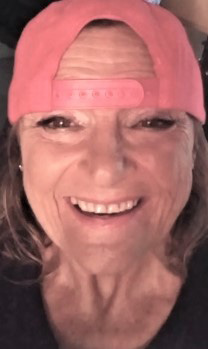Pictured Above: Pamela Lynn is a graduate student of journalism and digital design.
Courtesy of Pamela Lynn
By Pamela Lynn
My greatest professional desire is to become a successful freelance writer – with an emphasis on successful. So, when the opportunity to join a virtual meeting with two thriving freelance writers presented itself, I jumped to it.
The time spent with Amy Sherman and Tyler Gillespie was loaded with practical information for “anyone,” whether you are a published freelancer, or a newbie just setting out on your journey.
While Sherman dished information from both sides of the writing desk, as both editor and writer, Gillespie inserted helpful and comedic tips like, “Don’t be a jerk.”
Sherman and Gillespie were invited to share their real-world experiences in a recent virtual session for Dr. Janet Keeler’s Freelance Writing and Editing course – a new elective in the Journalism and Digital Communication department.
Gillespie is a professor of rhetoric at the University of Mississippi and a graduate of the digital journalism and design master’s program at USF St. Petersburg. He is an award-winning journalist published in the New Yorker, Rolling Stone, The Guardian, GQ, VICE and Salon.
As both a “poet and humor writer,” Gillespie’s published books include the just published The Thing about Florida: Exploring a Misunderstood State and Florida Man: Poems (2018). For more information, visit his website:tylergillespie.com.
Sherman is a freelance writer, veteran food blogger, recipe developer and an editor based in San Francisco. She has written for various publications and online sites such as Architectural Digest, Tasting Table and Food Network. Currently, she is the editor of two popular websites, cheeseprofessor.com and alcoholprofessor.com, she also has her own blog, cookingwithamy.blogpost.com, and website, amybsherman.com.
The allure of becoming a freelance writer comes with many questions. And having the opportunity to be a part of a virtual meeting with professionals in the field you are interested in gives you an edge on learning some tips and truths.
The climate of online learning has seen an increase of the professors at USFSP coordinating these virtual sessions and it’s of tremendous benefit.
Both Sherman and Gillespie stressed the importance of freelance writing being approached as a business.To do so successfully, you need to devise a plan.
Gillespie shared some of the real-world pitfalls he had made early on, such as?, sending pitches to multiple publications, and getting accepted by both. He eventually discovered that this puts the writer into an awkward position.
While, as a writer, it is flattering to have two editors accept your work, it may be one of the fastest ways to sabotage your reputation and ruin your career.
He shared the way to avoid that mistake is to add: “If I do not hear from you within the next three days, I will consider this a pass,” and pitch to other publications.
Open and honest communication is imperative. As is being honest with yourself as a researcher and writer.
I think that both Sherman and Gillespie made the point, that a writer needs to know what they are capable of doing. Sherman added, “Don’t discount yourself just because you don’t know about a subject.” She said she often writes about topics that interest her.
The topic of money is always on the table when writers discuss freelancing. Both Sherman and Gillespie agreed, “Don’t work for free.”
However, Gillespie did insert a caveat by saying, “If you are going to take a writing gig for free, make certain you own the content.”
I found both writers’ information about how to target publications informative. I think this was one of the things I found to be most helpful with regards to drafting pitches. So in an effort to get published, one must:
** Dissect the content
** Discern the type of writers they publish
** What are the submission guidelines?
** Determine the best section to target
** Craft a pitch specific to that publication
** Tell the publication why you are the writer for them
That all sounds so simple, right?
While it may not be simple at times, it does make things clearer in my approach to pitching my stories and ideas.
Early in the meeting, the discussion emphasized the importance of making connections, building a network and finding like-minded writers and associations.
Sherman shared that a connection can get your story shared with a publication. Someone you know may know someone who is looking for the type of writer you are, or the type of writing you do.
Gillespie shared that often a writer is, “isolated and alone in their head.” That sentence resonated with me. As Gillespie stated, “Build a network, find your tribe.” For me, that was my biggest takeaway.
So, I am off to find my people.
Pamela Lynn is a recent graduate of the mass communications program in USF St. Petersburg’s Journalism and Digital Communication department and is studying for a master’s degree in digital journalism and design.



